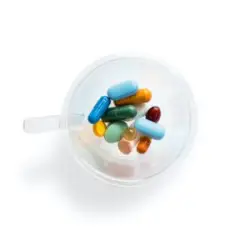
Earlier in 2022, a tragic car accident that occurred in North Las Vegas, Nevada resulted in the deaths of nine people. The driver, according to law enforcement authorities, ran a red light at a speed of over 100 miles per hour. Authorities reported that the driver, who died in the accident and caused the crash, had cocaine, PCP, and alcohol in his system according to autopsy and toxicology reports. Not surprisingly, driving while under the influence of drugs or alcohol is both dangerous and typically deadly. Additionally, driving while impaired is against the law. For this reason, Nevada has laws specifically addressing this.
Drugged Driving Laws: Illegal Drugs
As an initial reminder, no one should be driving under the influence of drugs and/or alcohol–everyone who gets behind the wheel should do so while sober. Under Nevada state law, driving under the influence of a drugs is defined as operating a motor vehicle:
- After applying, ingesting, inhaling, or otherwise using any “chemical, poison or organic solvent, or any compound or combination” of these so that the person is unable to safely drive or to have actual physical control of the vehicle; or
- With any amount of the below prohibited substances in his or her urine or blood that is equal to or greater than the allowed amount. These prohibited substances include: amphetamine, cocaine, cocaine metabolite, heroin, heroin metabolite, lysergic acid diethylamide; methamphetamine, phencyclidine, marijuana, and marijuana metabolite.
Drugged Driving Laws: Prescription Drugs
It is important to know that illicit drugs are not the only substances that can impair someone’s ability to properly operate a vehicle. Prescription medication–and even those that can be purchased over the counter–can impair one’s ability to drive. The US Food & Drug Administration states that the following medications may impair a driver’s ability to operate a motor vehicle:
- Opioids and other pain relievers;
- Anxiety prescription drugs;
- Anti-seizure medications;
- Antipsychotic medications;
- Antidepressants;
- Cold remedy products;
- Products containing codeine;
- Allergy medications;
- Diarrhea medications;
- Stimulants;
- CBD products; and
- Motion sickness medications.
Penalties and What to Do After an Accident
The penalties involved when someone is charged with drugged driving can be serious. First and second drug driving offenses within a timespan of seven years are considered misdemeanors under Nevada law. If there is a third offense within that time, the charge is upgraded to a felony. If the accident causes substantial harm or death, the penalties are even more serious. Moreover, a fatal driving while impaired (DWI) offense could be charged as vehicular homicide.
If you are injured in a car accident in Las Vegas, Nevada with an impaired driver, there are several steps you can take to protect yourself and others:
- Immediately contact the authorities and inform them that you suspect the other driver was impaired;
- Seek emergency medical treatment for yourself and others;
- Gather as much information as possible to document the accident such as insurance information, names and contacts of witnesses, copies of the police reports, as well as photos and videos.
Contact Our Attorneys
If you or someone you care about has been hurt in a Las Vegas accident due to the fault of an impaired driver, contact the experienced personal injury attorneys at H&P Law. Our skilled lawyers will fight for the monetary compensation you deserve.




